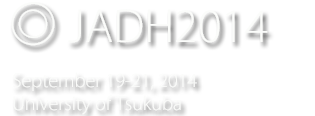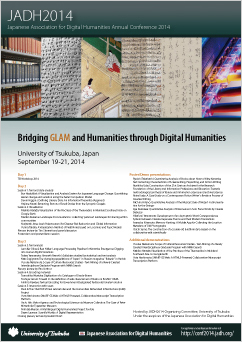Session 5-4
A Multilingual Digital Humanities Project for Asia
- Nirmala Menon (Indian Institute of Technology Indore)
This paper will look at the borders of languages and disciplines and re-imagine Digital Humanities for a multilingual Asian context from the point of publishing and translations.
Both Digital Humanities and Publishing will have to be radically reconceptualized in multiple languages for its success. I believe that Postcolonial DH should consciously facilitate projects in multiple postcolonial languages so as to preempt any canonical/linguistic hierarchy of languages. There is exciting potential to be able to do just that with the aid of technology that facilitates ventures such as publishing and translating with a lot more ease than ever before. The said tools are still nascent and often unsophisticated (especially the ones for translations) but that is precisely the challenging space of critical evaluation that calls for the Humanities in Digital Humanities. In other words, it is not about simply reengineering computing excellence but a conscious attempt at reimagining postcolonial publishing paradigms. This paper examines the critical work being done in various language literatures in India and its non-representation in postcolonial and other theoretical frameworks. I argue that a Digital Humanities project that provides a platform for conversations between these various critical works in literature will enrich and deepen our understanding of postcolonial conditions beyond the Anglophone writings. My project focuses on one aspect of this complexity—the huge amount of research and criticism being done in different language literatures in India. I envision a digital database that: 1) compels visibility and conversation between scholars of these different languages and 2) enable translations between the languages and into English of academic publishing in various languages. This will require a two step strategy: 1) Develop a comprehensive collaborative project that will provide the infrastructure for a multilingual digital project and 2) expand the project to include translations from and between the various discourses. While I envisage this project to begin with academic works in the discipline of literature, I am convinced it will be important for the sciences and technology publishing too. It will truly be an interdisciplinary project envisioned and initiated by the Humanities but that crosses the borders of liminality across languages.
- Keywords
- digital publishing, multilingual scholarship, literature, translation, database development

